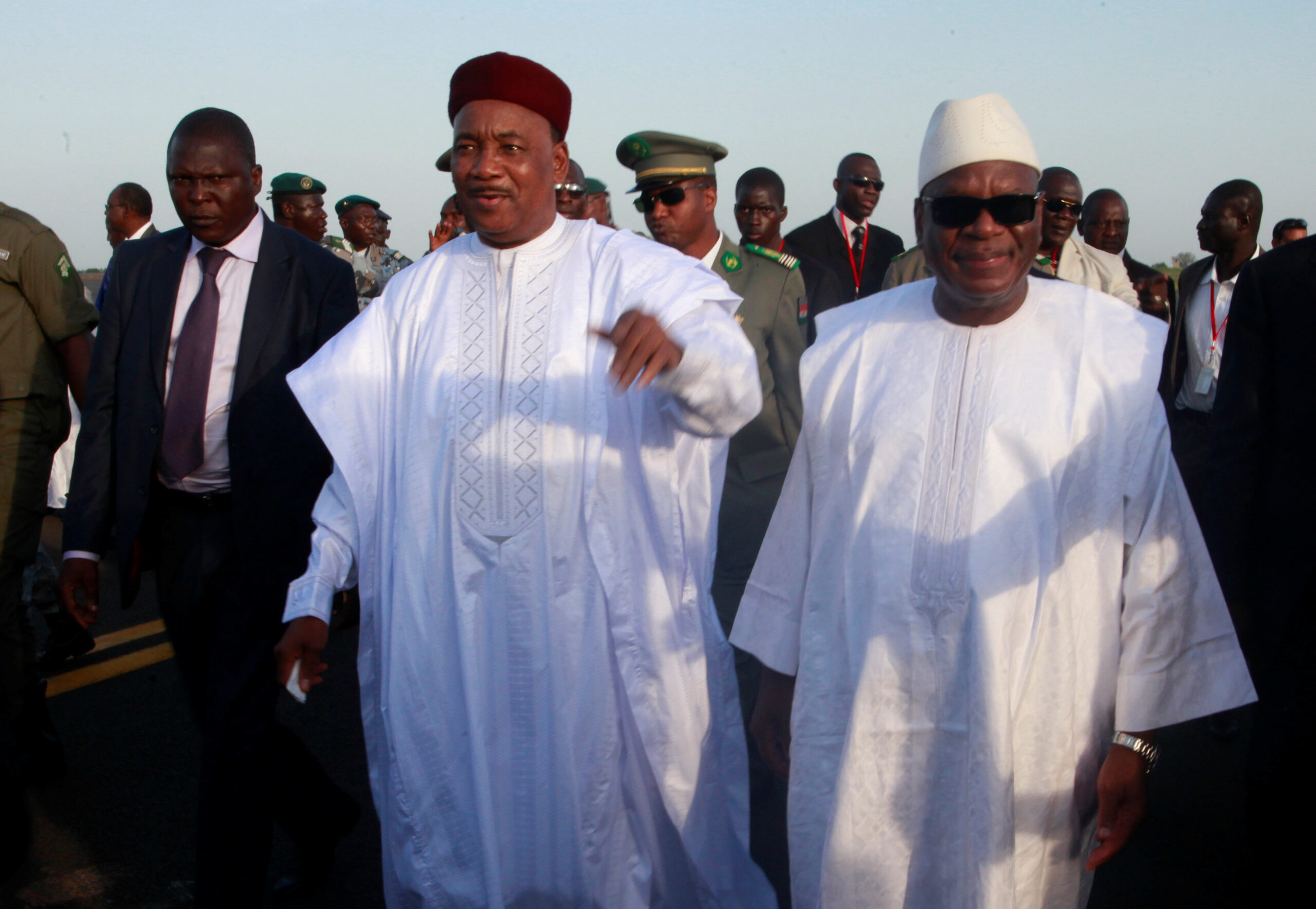
Mali’s neighbours tell junta to transfer power to transitional government

Mali’s West African neighbors on Friday told the military junta which seized control 10 days ago that it must transfer power to a civilian-led transitional government immediately and hold elections within a year.
In exchange, the Economic Community of West African States (ECOWAS) committed to lifting sanctions gradually as the coup leaders complied with its demands, the bloc’s chairman said.
ECOWAS suspended Mali from its institutions, shut borders and halted financial flows with the country following the overthrow of President Ibrahim Boubacar Keita on August 18.
On Friday, the 15-member group reinforced its hard-line because of concerns about prolonged instability in Mali and its potential to undermine the fight against Islamist militants there and in the wider Sahel region.
It outlined four main points it wanted to see progress on before sanctions could be gradually lifted.
Niger President Mahamadou Issoufou, who currently chairs ECOWAS, said Mali’s transitional president and prime minister must be civilians and would be banned from running in the next legislative and presidential elections.
“No military structure should be above the transitional president,” Issoufou said.
ECOWAS also called for the quick establishment of a government that will tackle the various challenges Mali is facing, and in particular prepare for legislative and presidential elections within 12 months.
A spokesman for the junta, Djibrila Maiga, said its leaders were still studying the bloc’s decisions.
The junta issued a statement on Friday evening inviting Mali’s political parties including Keita’s ruling coalition and civil society groups to a meeting on Saturday to discuss the organization of the transition.
Some members of Mali’s opposition coalition, the M5-RFP, which held several demonstrations calling for Keita to resign before the coup, said the regional leaders were misreading the situation.
“ECOWAS needs to revise its position,” Clement Dembele, a member of the coalition and a former presidential candidate, said in Bamako.
“The question, today, is that Mali needs statesmen. Mali doesn’t need a civilian or a soldier but a statesman,” he said.
The junta leaders said after taking power that they acted because the country was sinking into chaos, insecurity and corruption, blaming poor leadership.
The soldiers behind the coup are anxious to get the sanctions lifted and, as a gesture of goodwill, released Keita on Thursday and allowed him to return home.
They also cut their proposed duration of a transition to democracy to two years from three.
Mountaga Tall, another member of the M5-RFP coalition, said Mali’s needs must be identified first before fixing the deadline for a transition.
“It would be more rational, more reassuring to establish the tasks for the transition and, relative to the immensity of these tasks, to then decide if it will be three months, two years or three years,” he said.
Two diplomats who attended the conference said there was room for the transition to be extended for a couple of months beyond the ECOWAS deadline.
Regional leaders are scheduled to meet again on Sept. 7 in Niger’s capital Niamey, where they will assess the situation in Mali and take other measures, if necessary, Issoufou said.
Mali has struggled to regain stability since a Tuareg uprising in 2012 was hijacked by Islamist militants.
A French intervention drove back the insurgents but since 2018 the country has seen a sharp increase in violence and insecurity that has driven more than half a million people from their homes.






